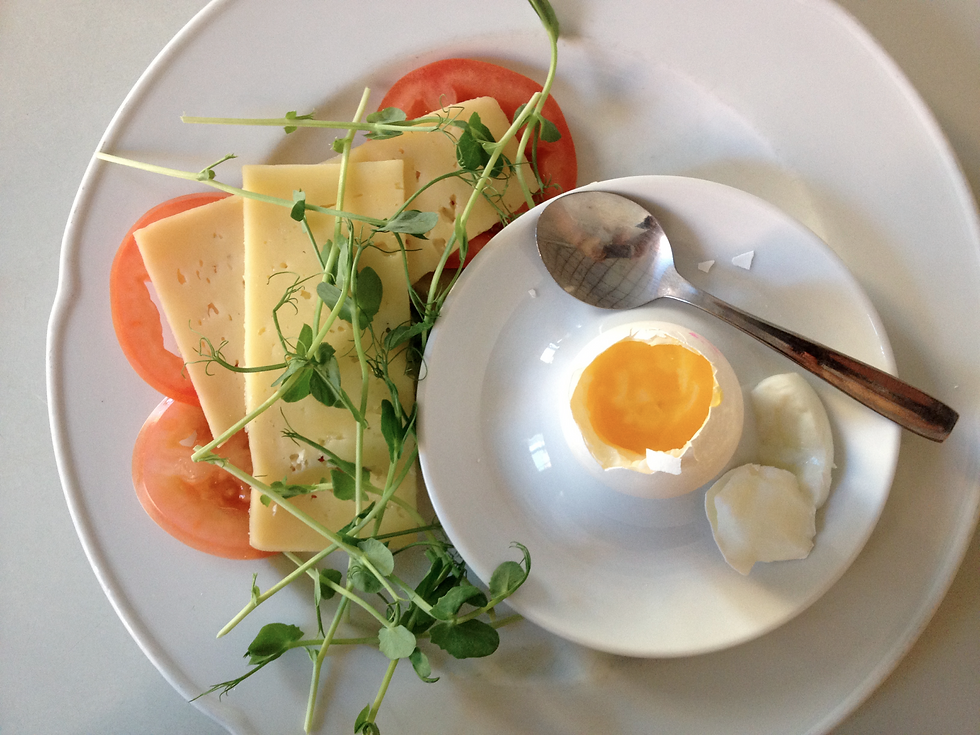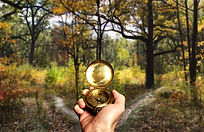What can I eat? Creating a safe food list.
- Diana Allen, MS, CNS
- Jan 31, 2015
- 4 min read

Long before I ever knew about SIBO, I just knew I had "digestive problems". To give it a name, I called it IBS-C. (IBS stands for Irritable Bowel Syndrome. The C stands for constipation, as opposed to IBS- with D for diarrhea, another really sexy situation). I'd suffered from IBS-C since I was a young woman. Sometimes it got better, sometimes worse. I dealt with it in different ways, applying all my knowledge as a lifelong natural foods lover, a dedicated alternative health seeker, an armchair (or "lay") herbalist and, finally, after earning a Master of Science degree in Human Nutrition, a bonafide clinical nutritionist since 2002.
My gut got really bad in the spring of 2013. I was constantly bloated, my pants didn't fit, I felt like I couldn't eat anything. So one morning, while writing about all this in my journal, I decided to put on my Science Hat and figure it out.
What I did was to think about different foods and how they felt in my belly when I ate them. I'm a sensitive person, highly empathic. I've known for a long time that even just by holding a food in my hands, say, a bag of Red Hot Blues organic corn chips, I can sense how it will feel in my body. (Often, not so great.)
Sitting there that day, thinking about different foods, I could actually feel in my gut if they would be good for me or not. (INTUITION WORKS. Your body knows.)
After I imagined lots of different foods in my mind—visualizing how they looked, and smelled and tasted—I came up with a short list of foods that I knew I could handle. Foods that wouldn't make me bloat or feel like I had a bunch of sour puke rotting in my gut all day long.
The short list looked like this:
three safest foods: spinach • broth • eggs
It's a very short list, true. But I knew it was super safe. I could eat anything on this list and not feel sick! Hope glimmered.
It was a beginning. From there, I spread out.
other safe foods:
cooked vegetables
chard
zucchini
carrots
green beans
proteins
salmon, shrimp, fish
chicken
raw goat cheese
fermented foods
carrot pickles
water kefir
24-hour yogurt
raw f & v
blueberries
fresh ripe tomatoes
sweet red peppers
snow peas
carrots, carrot juice
green herbs
bananas
avocado
safe treats
coconut butter
cacao nibs
very dark chocolate
wine
One problem with my list was the protein section. I was a strict vegetarian at the beginning of 2013—had been for a full year. In fact, I was coming off of several years of eating a plant-based, pescatarian diet, and for much of that time, a raw food diet with plenty of green smoothies, salads, raw vegetable juices, nuts, seeds and dehydrated delicacies.
I was very reluctant to put chicken on the list. Even the fish and shrimp was a concession. But I could tell, in my gut, that chicken would digest. It was a sad moment for me. I would really rather not eat animals. This is still true. It was a big coming to terms.
I realize now that because of my particular IBS-C situation (think slow transit time and redundant colon) eating so much fiber and complex carbohydrates was a bad idea. Fiber and complex carbs, as well as fructose and other simple sugars, are highly FERMENTABLE. Inside your warm, dark, juicy intestines these carbohydrates get digested by bacteria that make GAS.
Most of these bacteria are supposed to just hang out in your large intestine, making merry until all hours while giving plenty of party favors, in the form of amusing sounds and smells, to you and your living companions. But after a while, if the large intestines don't empty out regularly and the semi-digested foodstuff in your small intestines is held up there, those fun-loving colonic bacteria figure out there's another party going on. They sneak on up the road to your small intestines and party on to the break of dawn, making lots of whoopie and bacteria babies, too. SIBO.
The only way to get those microbes out of there is to kill them off, either by drugging them (with antiobiotic herbs or pharmaceuticals) and/or by starving them. Which brings me back to my safe food list, and another really interesting thing.
Soon after I came up with the above list (which, by the way, has been added to, subtracted from and refined over time) I started doing a bunch of research online. First I found out about FODMAPS: Fermentable Oligosaccharides, Disaccharides, Monosaccharides and Polyols, i.e. gas-producing sugars and starches. Then I learned more about GAPS (and it's cousin SCD, which I'd heard of before but mistakenly thought was just for celiac disease). When I put the two diets together, low-FODMAPS+GAPS, there was my list!
I knew I was on to something.
Right around that time, an article came out in the Townsend Letter that recommended the same crossover diet for treating SIBO: a low-FODMAPS, grain-free, broth-based GAPS/SCD-style program. I was so excited when I found that article, written by naturopathic doctors Alison Siebecker and Steven Sandberg-Lewis.
It confirmed that people with my kind of gastrointestinal symptoms can eat all the foods that show up on both diets (low-FODMAPS and GAPS/SCD) without aggravating their symptoms. In fact, eating this diet can even heal the problem, provided the underlying cause (in my case, C) is also addressed.
I enjoy reading other people's legal/illegal food lists (and there are several out there). Other people's lists are terrifically affirming and offer invaluable guidelines. Still I encourage you to do what I did: Sit with yourself, with your own inner wisdom, and make your own list. Honor your intuition.
There might be some foods on someone else's list that won't agree with you. Others that are missing which you do okay with. The bottom line is this: Only you can know what your own personal safe foods are.
Your short list of truly safe foods is likely very short. Any expanded lists will only be accurate sometimes, depending on whether or not you are flaring, and to what degree. But the short list - that's your go-to. And boy is it nice to have a safe place to rest. For me, a lightly poached egg in broth, on a soft green bed of wilted spinach sounds like heaven.





Comments